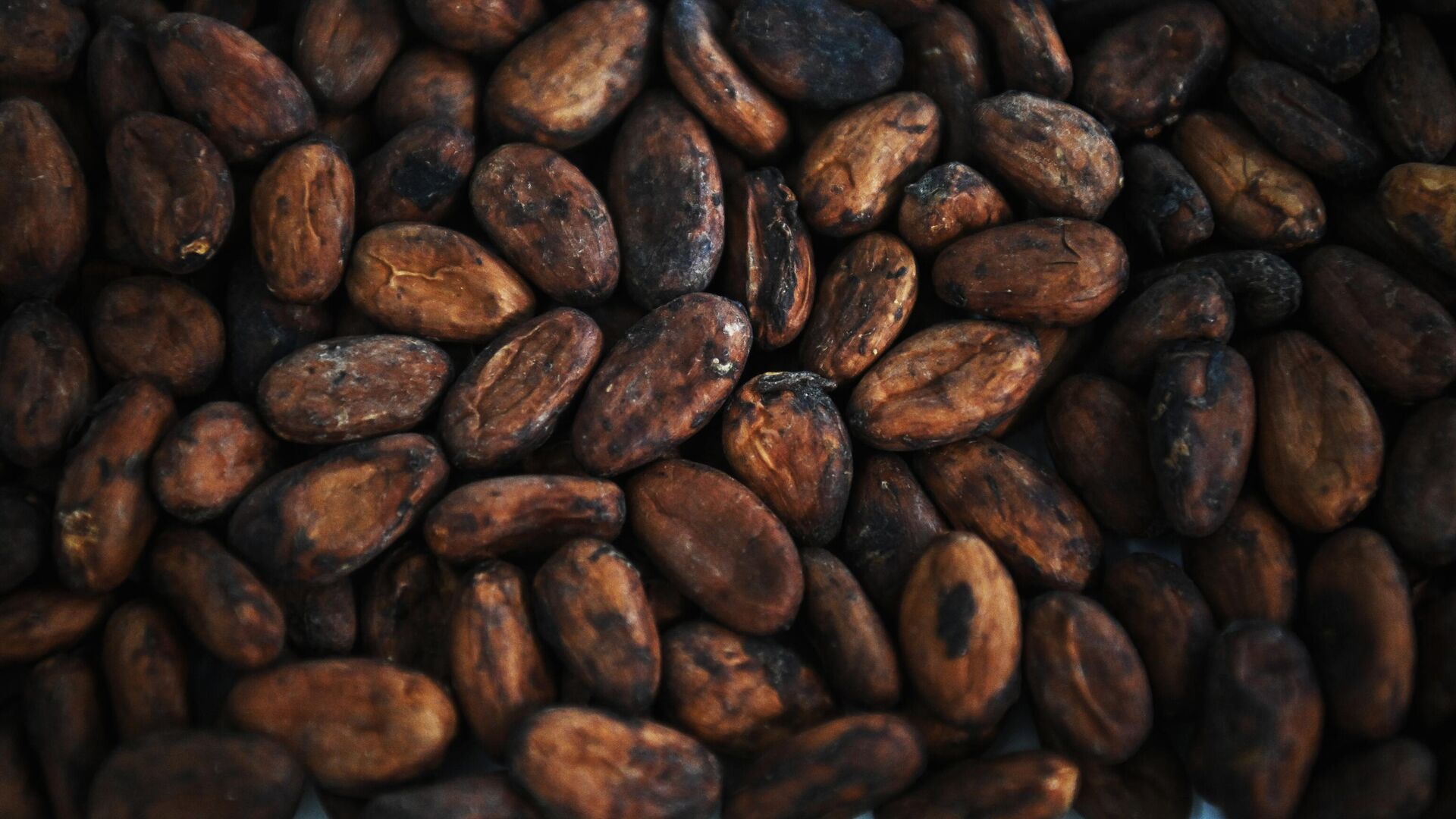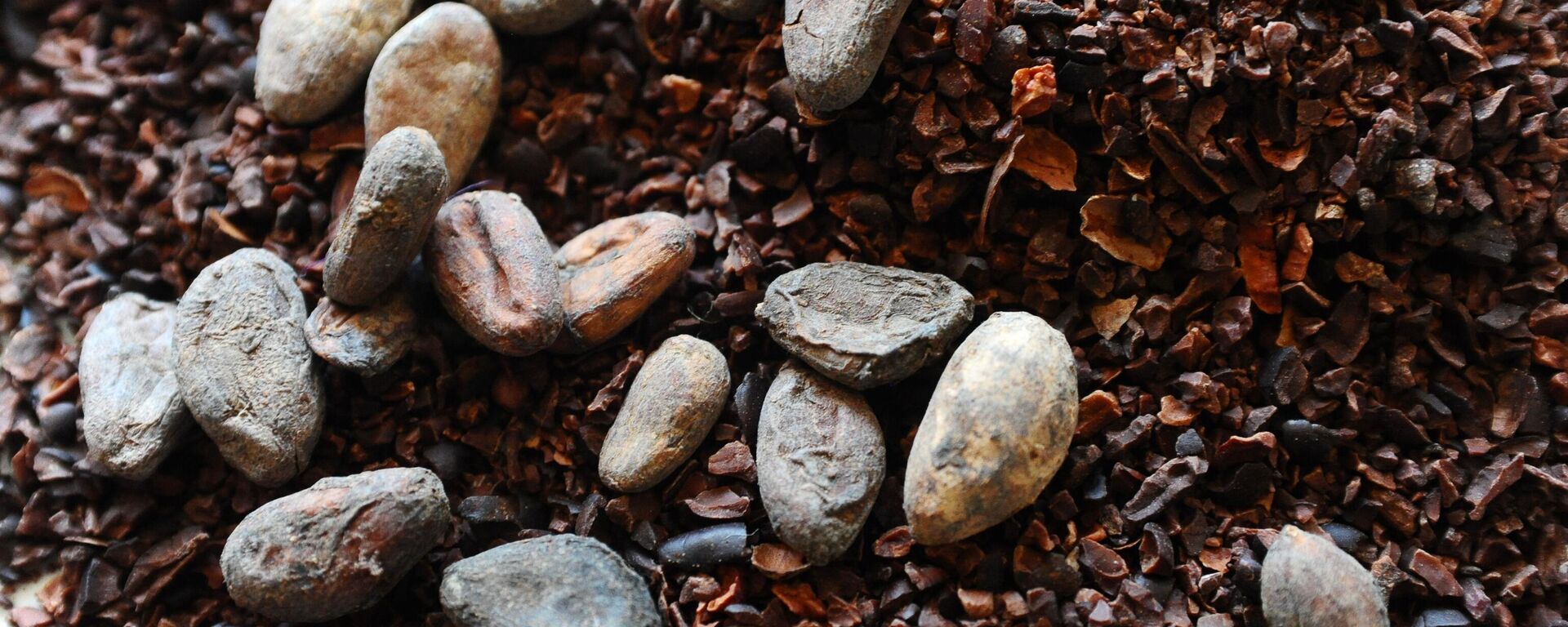https://en.sputniknews.africa/20250125/rise-in-cocoa-prices-does-not-benefit-african-farmers-but-multinationals-political-scientist-says-1070350839.html
Rise in Cocoa Prices Does Not Benefit African Farmers, but Multinationals, Political Scientist Says
Rise in Cocoa Prices Does Not Benefit African Farmers, but Multinationals, Political Scientist Says
Sputnik Africa
The cocoa market has recently experienced dramatic price swings due to a crop failure, caused by a prolonged drought, coupled with the effects of climate... 25.01.2025, Sputnik Africa
2025-01-25T16:41+0100
2025-01-25T16:41+0100
2025-01-27T11:38+0100
opinion
africa
europe
asia
european union (eu)
sputnik africa
cocoa
prices
agriculture
deforestation
https://cdn1.img.sputniknews.africa/img/07e8/08/1b/1068024820_0:303:3080:2036_1920x0_80_0_0_51784aff2d0391ae49fdd3ed25521a59.jpg
Farmers do not have access to the global market, and they also have to bear the high costs of production, Nicolas Agbohou, University Professor and Doctor of Political Science, explained to Sputnik Africa.One of the main problems, he said, is the lack of industrialization and processing of raw materials on site.According to Agbohou, the EU's deforestation law is negatively impacting the cocoa sector, with Europeans prioritizing their interests over those of Africans, as evidenced by Europe relocating its production to Asia rather than Africa.The cocoa prices more than doubled last year, hitting a record $12,931 per tonne on December 18, fueled by the largest 60-year deficit in the 2023/2024 crop year, according to the ING, a global financial institution.
https://en.sputniknews.africa/20250121/ghana-delays-cocoa-delivery-amid-sharp-drop-in-production-1070296776.html
africa
europe
asia
Sputnik Africa
feedback@sputniknews.com
+74956456601
MIA „Rossiya Segodnya“
2025
News
en_EN
Sputnik Africa
feedback@sputniknews.com
+74956456601
MIA „Rossiya Segodnya“
Sputnik Africa
feedback@sputniknews.com
+74956456601
MIA „Rossiya Segodnya“
africa, europe, asia, european union (eu), sputnik africa, cocoa, prices, agriculture, deforestation, economy
africa, europe, asia, european union (eu), sputnik africa, cocoa, prices, agriculture, deforestation, economy
Rise in Cocoa Prices Does Not Benefit African Farmers, but Multinationals, Political Scientist Says
16:41 25.01.2025 (Updated: 11:38 27.01.2025) Ekaterina Shilova
Writer / Editor
The cocoa market has recently experienced dramatic price swings due to a crop failure, caused by a prolonged drought, coupled with the effects of climate change and subsequent financial speculation, significantly impacting an industry that depends on affordable production costs.
Farmers do not have access to the global market, and they also have to bear the
high costs of production, Nicolas Agbohou, University Professor and Doctor of Political Science, explained to
Sputnik Africa.
One of the main problems, he said, is the lack of industrialization and processing of raw materials on site.
"Africans must have the audacity to ban—I insist on the word ban—the sale of raw materials such as cocoa," the professor stressed.
According to Agbohou, the EU's
deforestation law is negatively impacting the cocoa sector, with Europeans prioritizing their interests over those of Africans, as evidenced by Europe relocating its production to Asia rather than Africa.
"Between Europe and Africa, it is fourteen kilometers. But since these Europeans do not want Africans to get out of the socio-economic rut, they leave Africa there, especially sub-Saharan Africa, and they go to Asia," he stated.
The
cocoa prices more than doubled last year, hitting a record $12,931 per tonne on December 18, fueled by the largest 60-year deficit in the 2023/2024 crop year, according to the ING, a global financial institution.


